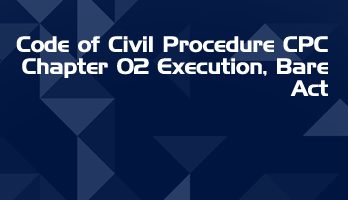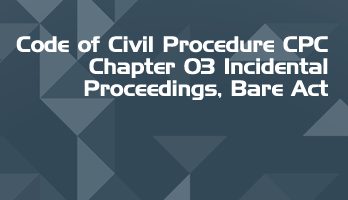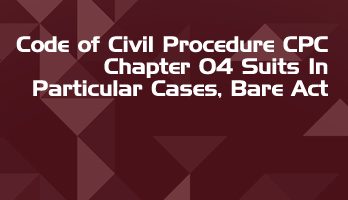A 'Bare act' is the actual legislation passed by the Parliament of India. Generally, an act sets out the high level legal and policy principles applicable to the subject matter of the law.
Most acts are accompanied by 'subsidiary legislation' such as rules, regulations, notifications and orders; which address the actual implementation detail of the act.
Free Full Course Available on LawMint's YouTube Channel
How to Land Your Dream LLB Internship in a Top Law Firm
- Part 1 - Introduction
- Part 2 - Internship Planning
- Part 3 - Internship Research
- Part 4 - Building Your Profile
- Part 5 - The Email
- Part 6 - The Resume
- Part 7 - The Cover Letter
- Part 8 - The Interview
- Part 9 - Self Development
Practical and comprehensive course, with real examples and step-by-step analysis of the complete internship application process. Check out LawMint's YouTube channel now!
Negotiable Instruments Act, 1881
Chapter XI – Of Acceptance and Payment for Honour and Reference in Case of Need
Section 108 – Acceptance for honour
When a bill of exchange has been noted or protested for nonacceptance or for better security, any person not being a party already liable thereon may, with the consent of the holder, by writing on the bill, accept the same for the honour of any party thereto.
Section 109 – How acceptance for honour must be made
A person desiring to accept for honour must, by writing on the bill under his hand, declare that he accepts under protest the protested bill for the honour of the drawer or of a particular indorser whom he names, or generally for honour.
Section 110 – Acceptance not specifying for whose honour it is made
Where the acceptance does not express for whose honour it is made, it shall be deemed to be made for the honour of the drawer.
Section 111 – Liability of acceptor for honour
An acceptor for honour binds himself to all parties subsequent to the party for whose honour he accepts to pay the amount of the bill if the drawee do not; and such party and all prior parties are liable in their respective capacities to compensate the acceptor for honour for all loss or damage sustained by him in consequence of such acceptance. But an acceptor for honour is not liable to the holder of the bill unless it is presented, or (in case the address given by such acceptor on the bill is a place other than the place where the bill is made payable) forwarded for presentment, not later than the day next after the day of its maturity.
Section 112 – When acceptor for honour may be charged
An acceptor for honour cannot be charged unless the bill has at its maturity been presented to the drawee for payment, and has been dishonoured by him, and noted or protested for such dishonour.
Section 113 – Payment for honour
When a bill of exchange has been noted or protested for non – payment, any person may pay the same for the honour of any party liable to pay the same, provided that the person so paying or his agent in that behalf has previously declared before a notary public the party for whose honour he pays, and that such declaration has been recorded by such notary public.
Section 114 – Right of payer for honour
Any person so paying is entitled to all the rights, in respect of the bill, of the holder at the time of such payment, and may recover from the party for whose honour he pays all sums so paid, with interest thereon and with all expenses properly incurred in making such payment.
Section 115 – Drawee in case of need
Where a drawee in case of need is named in a bill of exchange, or in any indorsement thereon, the bill is not dishonoured until it has been dishonoured by such drawee.
Section 116 – Acceptance and payment without protest
A drawee in case of need may accept and pay the bill of exchange without previous protest.
Important Central Acts in Regional Languages
Legislative department website also features regional language versions of several important Central Acts.
Free Full Course Available on LawMint's YouTube Channel
How to Land Your Dream LLB Internship in a Top Law Firm
- Part 1 - Introduction
- Part 2 - Internship Planning
- Part 3 - Internship Research
- Part 4 - Building Your Profile
- Part 5 - The Email
- Part 6 - The Resume
- Part 7 - The Cover Letter
- Part 8 - The Interview
- Part 9 - Self Development
Practical and comprehensive course, with real examples and step-by-step analysis of the complete internship application process. Check out LawMint's YouTube channel now!












